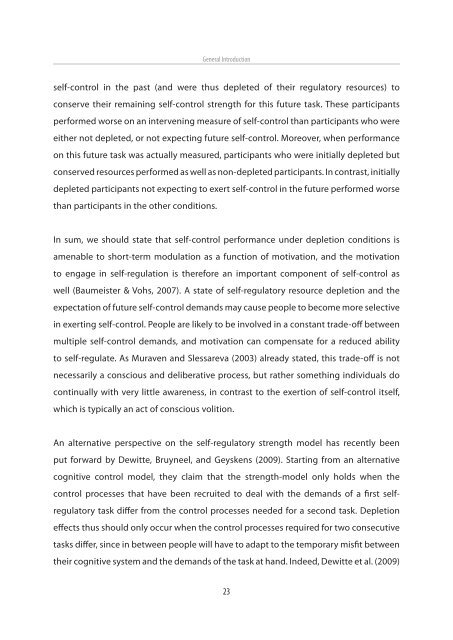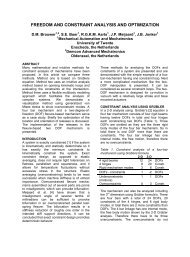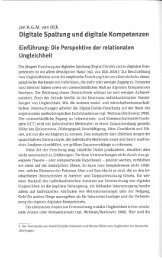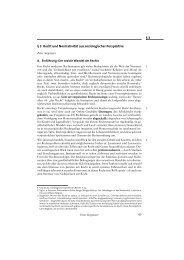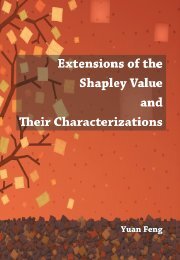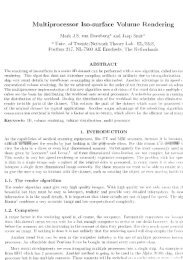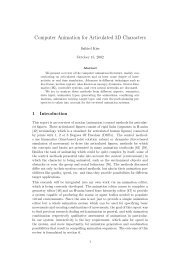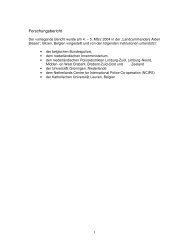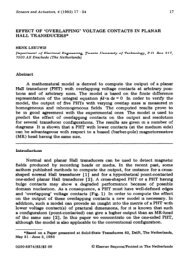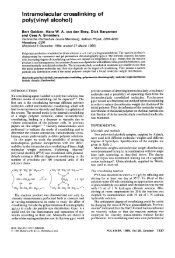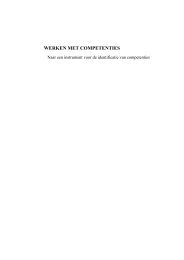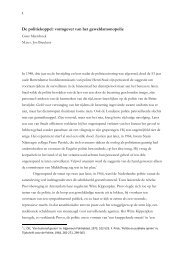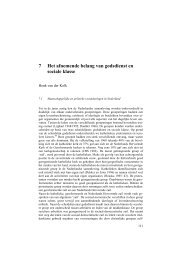Chapter 1 - Universiteit Twente
Chapter 1 - Universiteit Twente
Chapter 1 - Universiteit Twente
Create successful ePaper yourself
Turn your PDF publications into a flip-book with our unique Google optimized e-Paper software.
General Introduction<br />
self-control in the past (and were thus depleted of their regulatory resources) to<br />
conserve their remaining self-control strength for this future task. These participants<br />
performed worse on an intervening measure of self-control than participants who were<br />
either not depleted, or not expecting future self-control. Moreover, when performance<br />
on this future task was actually measured, participants who were initially depleted but<br />
conserved resources performed as well as non-depleted participants. In contrast, initially<br />
depleted participants not expecting to exert self-control in the future performed worse<br />
than participants in the other conditions.<br />
In sum, we should state that self-control performance under depletion conditions is<br />
amenable to short-term modulation as a function of motivation, and the motivation<br />
to engage in self-regulation is therefore an important component of self-control as<br />
well (Baumeister & Vohs, 2007). A state of self-regulatory resource depletion and the<br />
expectation of future self-control demands may cause people to become more selective<br />
in exerting self-control. People are likely to be involved in a constant trade-off between<br />
multiple self-control demands, and motivation can compensate for a reduced ability<br />
to self-regulate. As Muraven and Slessareva (2003) already stated, this trade-off is not<br />
necessarily a conscious and deliberative process, but rather something individuals do<br />
continually with very little awareness, in contrast to the exertion of self-control itself,<br />
which is typically an act of conscious volition.<br />
An alternative perspective on the self-regulatory strength model has recently been<br />
put forward by Dewitte, Bruyneel, and Geyskens (2009). Starting from an alternative<br />
cognitive control model, they claim that the strength-model only holds when the<br />
control processes that have been recruited to deal with the demands of a first selfregulatory<br />
task differ from the control processes needed for a second task. Depletion<br />
effects thus should only occur when the control processes required for two consecutive<br />
tasks differ, since in between people will have to adapt to the temporary misfit between<br />
their cognitive system and the demands of the task at hand. Indeed, Dewitte et al. (2009)<br />
23


